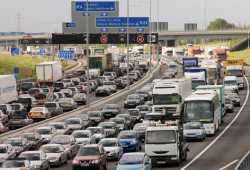>>1750464Very little. I think it's got more to do with the development of consumer finance. Originally you bought your car in cash or by taking out a loan, and then it was yours for the long haul. People became emotionally tied to their cars. Not only were they often a person's single largest consumer purchase, but they also required idiosyncratic care and feeding, with "chevy people" and "ford people", creating strong subcultures.
A few generations on, with more sophisticated financial products, and cars that don't break every week, car access and car ownership aren't as coupled as they were initially. Leasing cars is a familiar concept. Upgrading to a new car every few years by selling the older one is a familiar concept. Attachment to a particular vehicle is something done out of nostalgia, not prudence (in fact sometimes it is fiscally imprudent).
Arch-traditionalists may bleat about being enslaved to your banks and that buying on credit is the devil, but most people prefer to have a car that starts reliably, has all the latest safety equipment, and never breaks down. The brand, model, and access mechanism (leased, borrowed, or owned outright) are less of a concern, and being personally involved in maintenance is reserved either for hobbyists/collectors, or people in financial distress.
It's a slow process but the next logical step from there is to simply not care if the car you ride today is the same actual car as the one you rode yesterday. As long as you can get to where you need, the rest is just details.
And from there, the next step is, does it need to be a car, or can it be whatever is most convenient? But cars are not going away.
>>1750467People overstate the importance of urbanization when it comes to reducing car dependency. It's really just a few hundred thousand white collar trendsters, whose personal tastes are overrepresented in mass media. Outside of a few cities in Asia, as cities become more urbanized, you see MORE cars.

